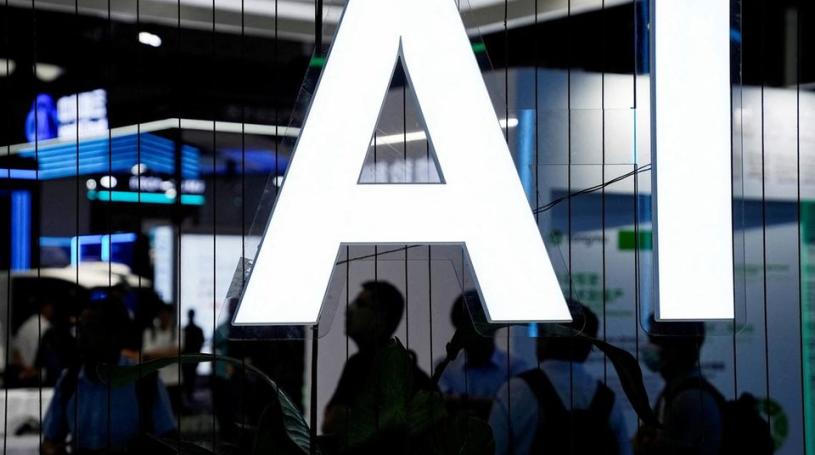SINGAPORE – Emerging areas like artificial intelligence (AI) have caught the eye of Singapore’s investment company Temasek, as it seeks opportunities in firms along the AI value chain.
In its Temasek Review 2025, released on July 9, it said it is looking at new areas such as AI and core-plus infrastructure, which refers to an emerging asset class that includes digital infrastructure and energy transition assets.
These are part of its efforts to build a resilient, future-ready portfolio that can deliver sustainable gains over the long term. Temasek chief investment officer Rohit Sipahimalani said: “There is a significant need for capital and opportunities, particularly around AI and related to energy, and in some areas, there’s a need for upgrading infrastructure.” When it comes to AI, Temasek is investing in leading companies that have reached breakout scale. It is looking into businesses that enable the broader AI ecosystem, such as data centres and innovative early-stage firms.
Temasek deputy chief executive officer Chia Song Hwee said: “There are many layers to this. We are not trying to take excessive risks. For some of the businesses, while AI is talked up a lot, they are businesses that are actually quite diversified. Like Nvidia, with or without AI, these businesses are strong fundamentally and market leaders.” He added that the riskier side is investing in companies that do business in the application of AI, with many start-ups in that space. “For smaller start-ups, we will apply (more) stringent evaluation and be more careful,” he said. The opportunity is huge, and Temasek will be selective, working with venture capital funds and participating in later funding rounds when it sees breakout opportunities.
When it comes to start-ups, Temasek has about 5 per cent of its portfolio in early-stage investments. It caps its exposure to this segment at 6 per cent of its overall portfolio value as part of its risk management framework. Mr Sipahimalani said Temasek will continue investing in start-ups, but with the strategy of going in during the later funding rounds. Temasek has reaped good returns from investing in companies at an earlier stage in the past, such as Alibaba, he added. “They ended up being big winners for us as we doubled down on them,” he noted.
For companies with very disruptive technologies like nuclear fusion, Temasek will track them and double down on them if there are breakouts. Mr Sipahimalani noted that the current environment for early-stage investments is challenging, with rising interest rates and higher mortality rates of companies. This is why the bulk of Temasek’s early-stage capital will be when the business model of the company is proven and it reaches its later funding stages, he said.
Temasek is also investing in AI through partnerships like the AI Infrastructure Partnership established by BlackRock, Global Infrastructure Partners, Microsoft and MGX, which seeks to invest in new and expanded AI infrastructure. When it comes to the core-plus infrastructure segment, Temasek is looking at opportunities in sectors such as data centres and energy transition. Companies in these sectors can provide resilient returns and steady cash yields, it said.
Some of its portfolio companies, like Sembcorp and PSA, already operate in this segment, with deep infrastructure domain expertise. Temasek is diversifying its portfolio with alternative assets, beyond traditional equities. For example, it is looking into private credit and hybrid solutions, which help underserved borrowers who are not covered by traditional credit providers such as banks. To tap opportunities in this space, Temasek created Aranda Principal Strategies, which now manages a $10 billion portfolio of direct investments and funds. Temasek invests in top-tier private equity funds, such as EQT, alongside other alternative strategies and hedge funds.
Looking ahead, Temasek said it is able to face uncertainties and geopolitical volatility, and it expects tariffs to have “minimal impact” on its portfolio companies. Mr Sipahimalani said Temasek has recognised in the last few years that there has been a global trend towards nationalism and protectionism. “In the last few years, we have been focused on directing our portfolio towards companies which have access to large domestic markets and which are relatively self-sufficient in terms of technology supply chain, within one geoeconomic sphere of influence,” he added.
For instance, Temasek has invested in hospitals, banks and consumer businesses in India that are not directly affected by geopolitics. It has also invested in consumer brands in China and software or fintech in the US. “That is why when we do our own stress assessment, the first order of impact of tariffs is very minimal on our portfolio companies,” he said, but added a caveat that whatever impacts global growth will also have an impact on all companies.
Chief financial officer Png Chin Yee said: “The new world of investment requires us to understand geopolitics and make sure that we factor that into our investment (considerations). “So it is here to stay, and we know the attributes of the companies that will be better-positioned amid this new investment world.”

